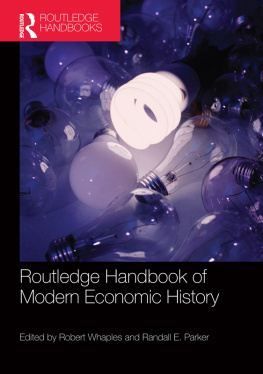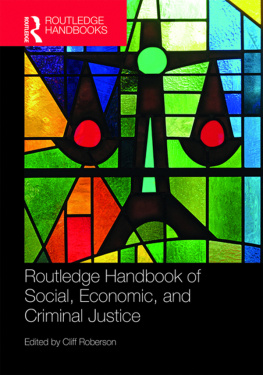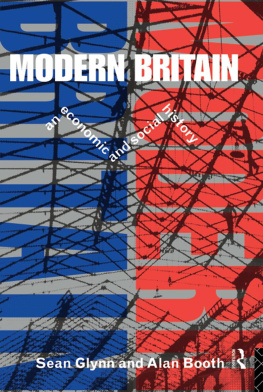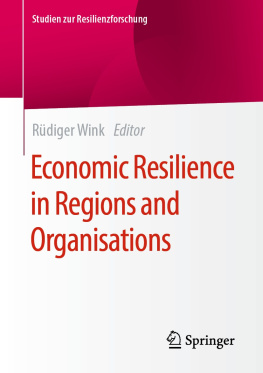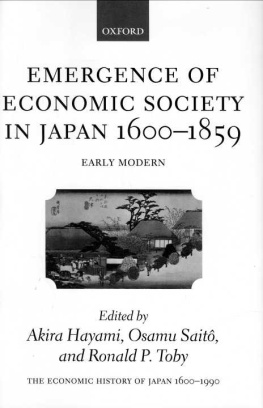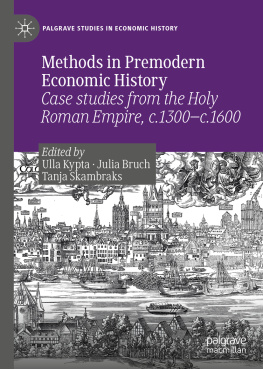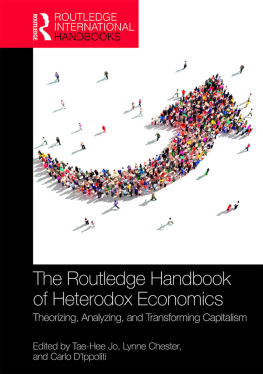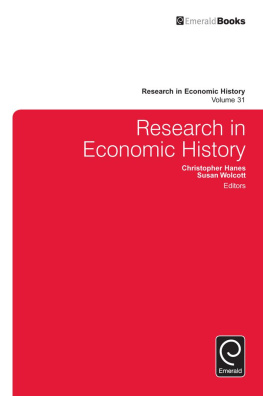Robert M. Whaples (editor) - The Routledge Handbook of Modern Economic History
Here you can read online Robert M. Whaples (editor) - The Routledge Handbook of Modern Economic History full text of the book (entire story) in english for free. Download pdf and epub, get meaning, cover and reviews about this ebook. year: 2012, publisher: Routledge, genre: Politics. Description of the work, (preface) as well as reviews are available. Best literature library LitArk.com created for fans of good reading and offers a wide selection of genres:
Romance novel
Science fiction
Adventure
Detective
Science
History
Home and family
Prose
Art
Politics
Computer
Non-fiction
Religion
Business
Children
Humor
Choose a favorite category and find really read worthwhile books. Enjoy immersion in the world of imagination, feel the emotions of the characters or learn something new for yourself, make an fascinating discovery.
- Book:The Routledge Handbook of Modern Economic History
- Author:
- Publisher:Routledge
- Genre:
- Year:2012
- Rating:4 / 5
- Favourites:Add to favourites
- Your mark:
The Routledge Handbook of Modern Economic History: summary, description and annotation
We offer to read an annotation, description, summary or preface (depends on what the author of the book "The Routledge Handbook of Modern Economic History" wrote himself). If you haven't found the necessary information about the book — write in the comments, we will try to find it.
The Routledge Handbook of Modern Economic History aims to introduce readers to important approaches and findings of economic historians who study the modern world. Its short chapters reflect the most up-to-date research and are written by well-known economic historians who are authorities on their subjects.
Modern economic history blends two approaches Cliometrics (which focuses on measuring economic variables and explicitly testing theories about the historical performance and development of the economy) and the New Institutional Economics (which focuses on how social, cultural, legal and organizational norms and rules shape economic outcomes and their evolution). Part 1 of the Handbook introduces these approaches and other important methodological issues for economic history.
The most fundamental shift in the economic history of the world began about two and a half centuries ago when eons of slow economic change and faltering economic growth gave way to sustained, rapid economic expansion. Part 2 examines this theme and the primary forces economic historians have linked to economic growth, stagnation and fluctuations including technological change, entrepreneurship, competition, the biological environment, war, financial panics and business cycles.
Part 3 examines the evolution of broad sectors that typify a modern economy including agriculture, banking, transportation, health care, housing, and entertainment. It begins by examining an equally important sector of the economy which scholars have increasingly analyzed using economic tools religion. Part 4 focuses on the work force and human outcomes including inequality, labor markets, unions, education, immigration, slavery, urbanization, and the evolving economic roles of women and African-Americans.
The text will be of great value to those taking economic history courses as well as a reference book useful to professional practitioners, policy makers and the public.
Robert M. Whaples (editor): author's other books
Who wrote The Routledge Handbook of Modern Economic History? Find out the surname, the name of the author of the book and a list of all author's works by series.

